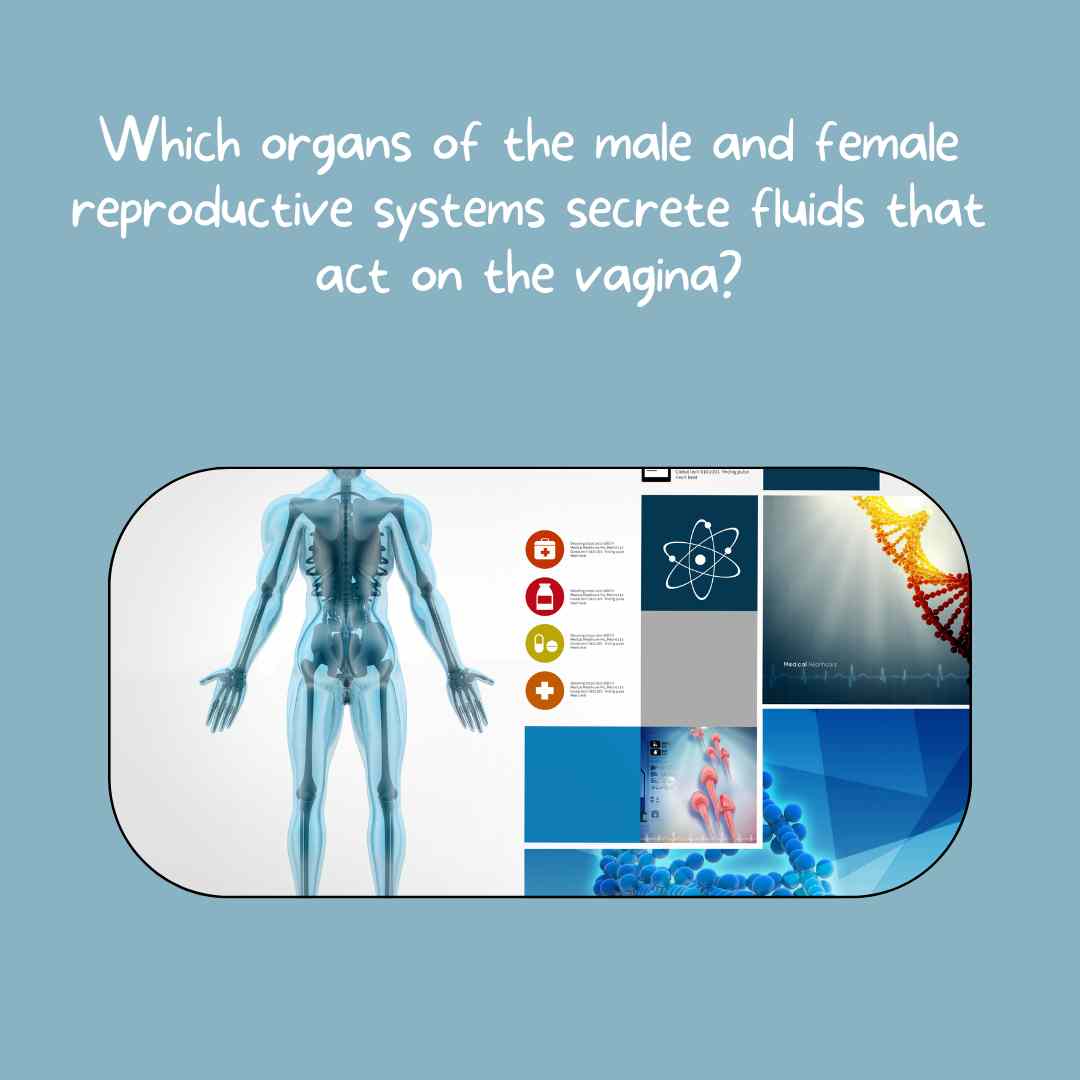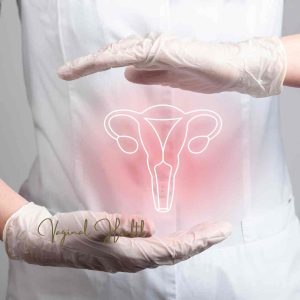Which organs of the male and female reproductive systems secrete fluids that act on the vagina?

How Hormones and Glands Work Together to Keep Your Vagina Healthy, Ladies, the vagina is more than just a mystical and mysterious part of the female anatomy. In fact, it’s an incredibly complex ecosystem that relies on a delicate balance of hormones and glands to keep it healthy. While we may not give much thought to these little-known body parts, they play a vital role in maintaining overall vaginal health. So sit back, relax, and let’s delve into the fascinating world of how hormones and glands work together to keep your lady bits happy and healthy!
Hormones and Glands
Your vagina is home to a complex system of hormones and glands, which work together to keep it healthy. The most important hormones for vaginal health are estrogen and progesterone. These hormones are produced by the ovaries and play a vital role in maintaining the health of the vaginal lining.
Estrogen is responsible for keeping the vaginal lining thick and elastic. This helps to prevent tearing and infection. Progesterone helps to regulate the thickness of the vaginal lining, making sure it is not too thin or too thick. It also plays a role in keeping the pH balance of the vagina normal, which helps to prevent infections.
The two main glands that contribute to vaginal health are the Bartholin’s gland and the Skene’s gland. The Bartholin’s gland produces a lubricating fluid that helps with sexual intercourse. The Skene’s gland produces an acidic fluid that helps to keep harmful bacteria from growing in the vagina.
Male Reproductive System
The male reproductive system is responsible for the production of sperm and the delivery of those sperm to the female reproductive system. The key parts of the male reproductive system include:
– The testes (testicles): These are the two glands that produce sperm. The testes are located inside the scrotum, which is a sac of skin that hangs down from the body just behind the penis.
– The epididymis: This is a long, coiled tube that stores sperm until they mature and are ready to be released. It also helps to transport sperm from the testes to the vas deferens.
– The vas deferens: This is a long tube that carries sperm from each epididymis to one of the two ejaculatory ducts. The ejaculatory ducts empty into the urethra, which is also used for urination.
– The prostate gland: This gland surrounds the urethra and produces a fluid that makes up part of semen. Semen is a mixture of sperm and fluids produced by different glands, including the prostate gland.
– The seminal vesicles: These glands produce another fluid that mixes with semen before it is ejected from the body during ejaculation.
Female Reproductive System
The female reproductive system is made up of the ovaries, fallopian tubes, uterus, cervix, and vagina. The ovaries produce eggs (ova) and secrete the hormones estrogen and progesterone. The fallopian tubes transport the eggs from the ovaries to the uterus. The uterus is where a baby grows during pregnancy. The cervix is the lower part of the uterus that opens into the vagina. The vagina is a muscular tube that connects the cervix to the outside of the body.
estrogen and progesterone are two important hormones involved in regulating the female reproductive system. Estrogen is responsible for the development of the female sex organs and secondary sexual characteristics such as breast growth, pubic hair growth, and menstrual cycle regulation. Progesterone prepares the endometrium (lining of the uterus) for implantation of a fertilized egg and maintains pregnancy.
Role of Estrogen and Progesterone in Vaginal Health
It’s no secret that your hormones play a big role in keeping your vagina healthy. After all, they are responsible for regulating your menstrual cycle and keeping your vaginal tissues healthy and lubricated. However, you may not know that the two main hormones involved in vaginal health are estrogen and progesterone.
Estrogen is responsible for keeping the vaginal tissues healthy and lubricated. It does this by increasing blood flow to the area and promoting the growth of new vaginal cells. Progesterone, on the other hand, helps to thicken the walls of the vagina and maintain the lining of the uterus (known as the endometrium) during pregnancy.
Together, these two hormones work together to keep your vagina healthy and functioning properly. If you have too much or too little of either hormone, it can lead to problems such as dryness, inflammation, or even infection. That’s why it’s important to have a healthy balance of both estrogen and progesterone in your body.
Role of Androgens in Vaginal Health
Androgens are hormones that are important for the development and maintenance of reproductive organs, including the vagina. They also play a role in sexual function and libido. Low levels of androgens can cause vaginal dryness, thinning of the vaginal walls, and decreased sex drive.
Other Key Hormones That Affect Vaginal Health
There are other key hormones that affect vaginal health in addition to estrogen. One of these is progesterone, which helps regulate the menstrual cycle. If progesterone levels are too low, it can lead to irregular periods or even amenorrhea (absence of menstruation). Progesterone levels can also drop during perimenopause and menopause, which can cause changes in the vaginal lining and increased dryness or inflammation.

Another important hormone for vaginal health is testosterone. Although most often associated with male characteristics, testosterone is present in both sexes and plays an important role in sexual function. In women, testosterone is produced by the ovaries and adrenal glands and helps maintain libido (sex drive), arousal, and orgasms. Testosterone levels can decrease with age, menopause, or surgical removal of the ovaries, which can lead to decreased sexual desire and satisfaction.
There is DHEA (dehydroepiandrosterone), a hormone produced by the adrenal glands that serves as a precursor for both testosterone and estrogen. DHEA levels also decline with age and this can contribute to changes in vaginal tissues, including atrophy (thinning) of the vaginal walls. Low DHEA levels have also been linked to reduced sexual desire and satisfaction.
Foods That Can Help Manage Hormonal Activity
When it comes to keeping your vagina healthy, what you eat can make a big difference. There are a few key nutrients that can help to regulate hormone activity and keep your reproductive system functioning properly. Here are some foods to focus on:
1. Whole grains: These complex carbs help to regulate blood sugar levels, which can in turn help to stabilize hormone levels. Aim for at least three servings of whole grains per day.
2. Leafy greens: Rich in vitamins and minerals, leafy greens like spinach and kale help support overall health – including reproductive health. Add them to salads, smoothies, or sauté them as a side dish.
3. Fatty fish: Fish like salmon and tuna are packed with omega-3 fatty acids, which have anti-inflammatory properties and can help reduce the risk of certain hormone-related cancers, like ovarian cancer. Aim for two servings of fish per week.
4. Beans and legumes: Another good source of complex carbs, beans and legumes also contain fiber and protein – both of which are important for regulating hormone levels. Add them to soups, stews, or enjoy them as a standalone side dish.
5. Nuts and seeds: Nuts and seeds are a great source of healthy fats, minerals, and vitamins – all of which play a role in maintaining hormone balance. Enjoy them as a snack or add them to yogurt or oatmeal for an extra boost of nutrition
Key Hormones and Glands Involved in Regulating Vaginal Health
– Estrogen – Progesterone – Ovaries – Pituitary gland
The key hormones and glands involved in regulating vaginal health are estrogen, progesterone, and the ovaries. The pituitary gland also plays a role in regulating these hormones.
Estrogen is the primary hormone responsible for keeping the vagina healthy. It helps to maintain the vaginal lining, keeps the pH balance in check, and prevents dryness and atrophy. Progesterone is another important hormone for vaginal health. It helps to thicken the vaginal lining and prevent uterine bleeding. The ovaries produce both estrogen and progesterone. The pituitary gland regulates the production of these hormones.
Keeping these hormones and glands in balance is essential for maintaining vaginal health.
Conclusion
It is clear that hormones and glands have an essential role in keeping the vagina healthy. When these components are working properly, the body can maintain comfort, lubrication, and pH balance levels. And it’s also important to know that your hormone production can be affected by several factors such as stress, diet, hormonal imbalances, medications like birth control pills and antidepressants, age-related changes during menopause or postmenopausal periods, etc. Finally taking care of the intimate parts of your body should always remain a priority for all women so they can enjoy comfortable sex life free from infections and other health problems caused due to improper functioning of hormones and glands.